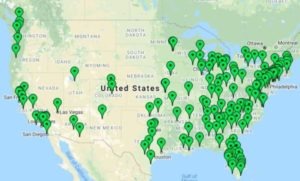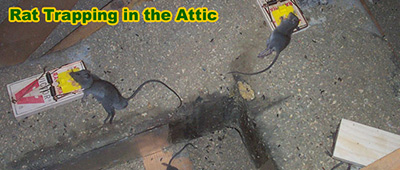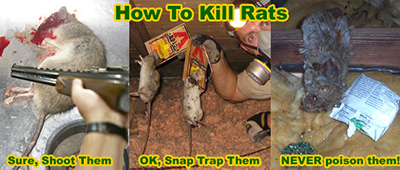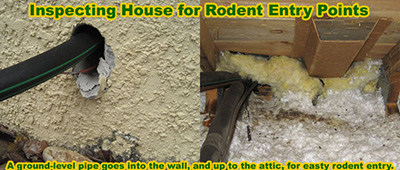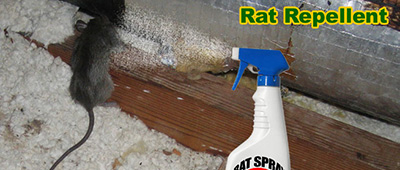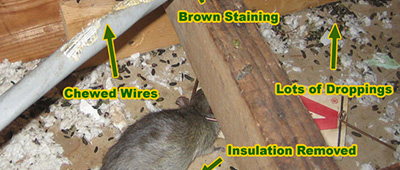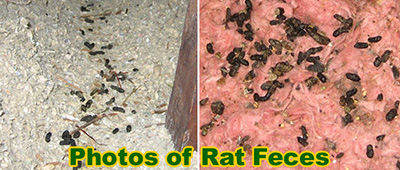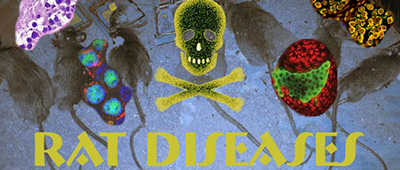Believe it or not, one of the most dangerous things about having a wild animal invade your home is the mess it leaves behind. Feces and urine from wild animals such as rats, mice, bats and more can all come with a number of disease threats. Rats can carry a seriously impressive range of diseases, and a lot of these can be transferred to humans and other animals too, including pets.

Salmonella – another very well known disease, and yet another one passed on from the urine and droppings left by rats. Many people aren't aware that rats even carry this disease, let alone that it can easily be passed on to humans. In fact, both wild rats and domestic (pet) rats can carry this disease, which I'm sure makes you think about your home pet choices a little more seriously. With diarrhea, vomiting, fever, chills, muscle aches and pains, and crippling stomach cramps, we are sure that this isn't a disease you will want to invite into your home.
How about Leptospirosis? You may also have heard this one being called Weil's disease? Well, it's another of the diseases that are often passed on from rat to humans, and is another one that often comes with symptoms that are easily associated with other, less serious conditions first. You won't know whether or not the rat is sick from looking at it, but in some severe cases, this condition can kill.
There are so many diseases associated with the feces and urine of rats, and they just build up to a much bigger picture – rats are NOT animals you will want in your home. That's even more so the case when you consider how fast they reproduce. It won't be long before one rat turns into a hundred rats – they really do breed at a staggering rate.
When you have rats in your property, getting rid of the animal itself is just one part of a much bigger problem. You will need to make sure that you are sealing up the holes that the rat used to gain entrance, and you will also need to ensure that you have gotten rid of everything the critter came into contact with. If this is in the attic, it might mean replacing the insulation. You will need to remove every last trace of the rat, biological matter included, and that's why we would always recommend hiring a professional to do the job for you. It's a pretty extensive project for just one man alone!
Go back to the Rats in the Attic home page.
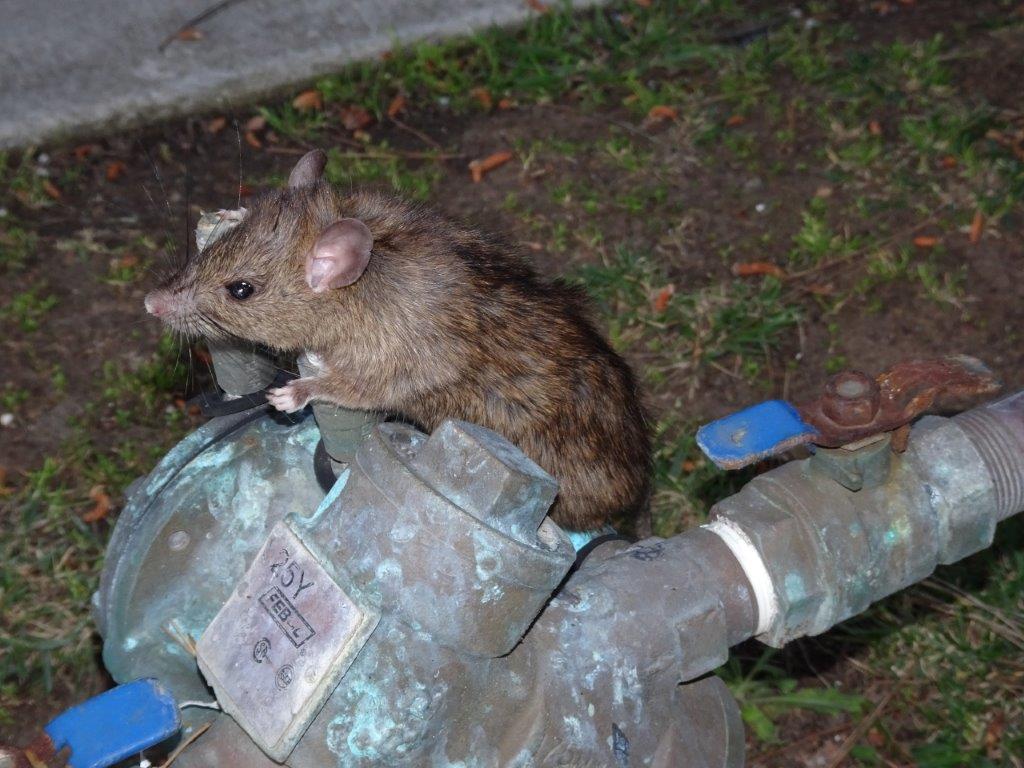
Wherever you find rats you find rat feces. It is these feces that rats leave behind that can cause serious health problems and today we’re talking about why this is. People are very aware of the risks of rat feces and one of the biggest fears you might have is contracting a horrendous disease from rat droppings. The internet and urban legends are full of terrifying tales and scary stories where rat feces are the cause of unimaginable illnesses with grotesque symptoms that people have befallen after contact with rat feces.
While people might instantly dismiss these as simple tales designed to scare people and emphasize that rat droppings are bad, the truth is, rat feces is extremely dangerous and poses a serious health hazard.
But, are rat droppings truly as dangerous as the stories claim to be? What are the things to be aware of if you discover rat feces in your home?
Rat feces is, in fact, extremely dangerous to touch and breathe. Rats leave a fecal deposit every few steps they take, and rats are not picky about where they leave these poop pellets. These dropping can end up in your kitchen, bathroom, bedroom, and many other areas that simply need to be sanitized. The risk from rat feces reaching your food, hygiene products, and sheets, is great if you have rats living in your house, and this risk includes inhaling or even physical contact with the droppings.
Rat feces contains more than a few different bacteria and pathogens, including Hantavirus, a disease that is renowned for its high mortality rate. Studies have shown that Hantavirus infection will be fatal to 40% of people who contract it; this figure is based on early medical intervention including early diagnosis and treatment.
Hantavirus is only one of the possible diseases rats can spread. Rat feces will also spread Weil’s Disease, a serious form of Leptospirosis which, without treatment, can lead to kidney damage, meningitis (inflammation of the membrane around the brain and spinal cord), liver failure, respiratory distress, and even death. Rat droppings can spread many infectious diseases that can cause serious and long-term health problems, and you should be aware of several things you can do to make sure you don't contract any infectious disease.
To minimize the risk of catching any of these diseases, you need to be extremely careful with the way you handle and clean rat feces. Ensure that the room is very well ventilated and make sure to use personal protective equipment such as a face mask and gloves. Also make sure to double-bag the feces, and perform a thorough disinfection of your home, to make sure that no dangerous bacteria are left behind. Wearing gloves while you clean rat feces will minimize the risk of contact, and wearing a face mask will enable you to minimize the risk of inhaling any bacteria.

